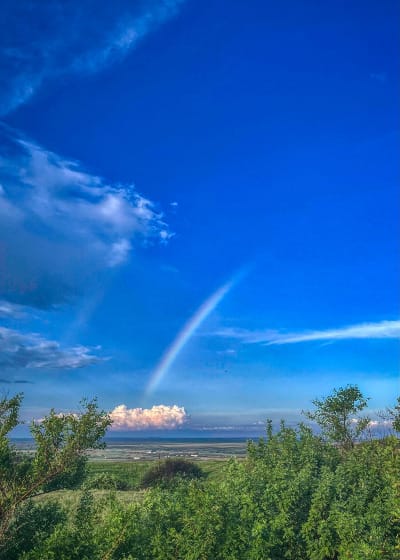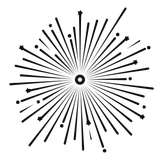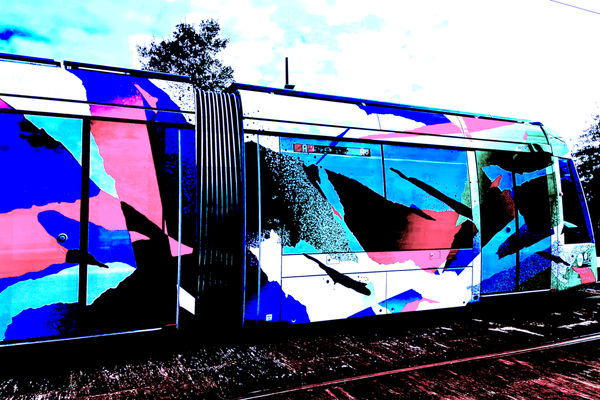Relief from Doomscrolling
How others stopped reading online for a month.

It’s been nothing but blue skies and warm weather here these past few weeks. From dawn to dusk, the sweet fragrance of honeysuckle lingers in the air. The days are so long, I’m usually in bed before I can get a good view of the stars. This weather reminds me of childhood summers when time languished under the sun and there were fewer distractions to rush it away. My options to avoid boredom were watching made-for-TV movies on repeat or reading. I have fond memories of travelling through time and space, visiting foreign and fantastical places, thanks to library books.
While everything screams summer now, the holiday season hasn’t started yet. We need rain, but as long as there are no heatwaves, everyone is content to forget that we’ve arrived at a climate crisis tipping point. This golden weather has me longing for the languor that follows a delicious summer read. I'm looking forward to having another offline reading session once the holidays begin.
Today, I’m excited to share an interview with two TIL readers, Lisa Hosokawa and Rémi Chartier, who both did the offline reading experience in May. They’ve kindly agreed to talk about their experiences with us.
Lisa is a writer, narrative designer, and card-carrying editor in Japan. Rémi works as a sporting goods sales agent in Canada and enjoys spending time behind a camera lens in his spare time. I hope you enjoy reading about their experiences as much as I did!
(This interview has been lightly edited for length and clarity.)
Please describe the parameters of your offline reading experience and the reasons for wanting to try this experiment.
LH: After a whirlwind of wins last winter, I went into spring with tasks so long and nebulous that they slowed my creative output. I had audio recordings for two short stories to prepare and a first draft of a text-based game I was always this close to finishing. I started this offline reading experiment because I was done with online distractions pushing me out of the driver’s seat and pushing my creative projects from shotgun to bitch. (Can I say “bitch”?)
• I logged out of LinkedIn, one of the two social media platforms I use. The other is Discord.
• I used Discord only on mobile. (I hate mobile.)
• E-books were okay.
• E-mail was used sparingly for correspondence, not conversation.
• Newsletters could go to hell. (Except yours.)
• Absolutely no links that weren’t directly related to my works-in-progress (a slippery slope).
• Shared links could be opened if I was in a video conference. Once the meeting ended, I closed all my windows.
RC: My offline reading challenge was a hybrid of no online reading and no use of the big three social media apps in my personal rotation: Instagram, Snapchat, and Twitter. I started the challenge late as I didn’t delete the apps from my phone until the 6th or 7th of May. But then it lasted for the rest of the month. My inspiration came from your newsletter and from your personal challenge in March.
2. How did it go? What surprised you the most about your experience?
LH: To absolutely no one’s surprise, when I didn’t read articles that spawned five or six others, I had time for other stuff.
• I finished three books I’d long left half-read.
• I began drawing again, which I haven’t done since high school.
• I finished that first freakin’ draft.🎉
• I played through several video games with my partner. (I’m a game developer. This is research, okay?)
More than time, though, I regained peace. As a highly socially anxious person, it’s hard to focus on creative projects with all the news of hirings and firings on LinkedIn and Discord. Layoffs are stressful, even for solo devs. But I didn’t realize how stressful until I logged off. When I didn’t doomscroll, I started writing earlier and longer before needing a break. Time and focus are finite. This experiment ensured I got more done while tolerating interruptions.
One of these interruptions was major. I had a health scare in May that wrecked my motivation, hope, and focus for two weeks. Going online meant a WebMD search was a click away. I made that mistake once when I should have been talking to my doctor instead. Lots of people don’t have access to a trusted GP. I do; I’m grateful, and now I’m not reading anything online about my condition that isn’t prescribed by my doctor.
RC: For the most part, it went really well. I definitely bent the rules a few times doing some headline reading, taking in short sports articles via The Score app. After all, it was full-blown NHL playoff time.
What surprised me the most was the amount of “dead” time I regained. I didn’t realize I was wasting so much time reading too many newsletters, useless articles, and doomscrolling through social media. I thought I had a handle on my social media use, but still found myself mindlessly tapping my phone where the apps used to be before snapping out of my hypnosis.
After the initial withdrawal effect wore off, a sense of calmness and peacefulness remained, which was a welcomed new norm. It was eye-opening to see how much of a “slow burn” was taking place prior to the challenge, and how that low-level of anxiety/FOMO/consumerism had become normal for me.

3. Do you think you will do it again? Any tips for others who want to try it out?
LH: As a creative who finds curiosity valuable and life-giving, it’s tricky; making my window to the Internet smaller means cutting back on learning opportunities and curiosity for places I’ll never visit, people I’ll never meet, histories, and technologies being made under my radar. But after the first week of this experiment, I mostly stopped bookmarking articles to read in June. It reminded me (as it will again) that I’m really going to be okay if I don’t read everything. For professional purposes, I will have to get back on LinkedIn and Discord. But I’m okay with not doomscrolling or falling down Wikipedia wells. I feel zero guilt about unsubscribing from or batch-recycling unread newsletters and e-mails.
This experiment was more about intention than the Internet. It was irreplaceable. Thanks for the idea and invitation.
RC: I’m going to continue without the social media apps on my phone, although I will check them once a day via desktop to ensure I’m not missing any personal messages. I’ll also go back to some of my newsletters, but only after I discard a bunch and find myself with only those that truly bring me joy à la Marie Kondo. I think a quarterly or biannual month-long online reading break will also become a new routine. It was a nice recharge of sorts.
As for tips, I’d say start by taking stock of how you spend your days down to the minute. It may seem crazy at first, but it will highlight which activities are taking a few minutes here and there, only to add up to a substantial chunk of time. At that point, you can build in layers of friction to either: A) stop the unwanted habit cold turkey or B) make it more difficult to continue that habit. The kicker would also be to find something more “productive”—that’s a charged word these days, haha—or “healthier” to replace the old habit with. In short, everyone should read Atomic Habits by James Clear haha. He’s far more eloquent and does a great job breaking down habit creation/replacement, etc.
***
Thank you, Lisa and Rémi for your contribution (and still reading TIL during and after your offline reading month; I’m flattered)! You can follow Lisa’s work here and find more of Rémi’s photos and interests at @remchartier on Instagram, Twitter, and Facebook.
If anyone else has attempted the offline reading experience, please share your experiences with us!
Do you have any favourite summer reads? I’m looking for fiction, but am open to all genres.
Now, back to work.
Happy writing, happy creating!
G.G. Law
If you like TIL please consider clicking on the ❤️ at the top of the page and share or subscribe to this newsletter. Your support and encouragement help keep my work going. Thanks!





